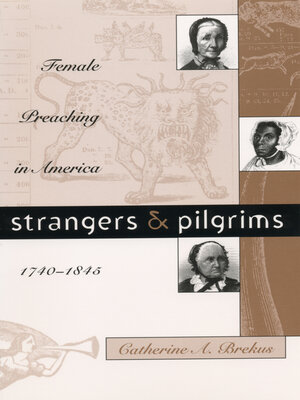Strangers and Pilgrims
ebook ∣ Female Preaching in America, 1740-1845 · Gender and American Culture
By Catherine A. Brekus

Sign up to save your library
With an OverDrive account, you can save your favorite libraries for at-a-glance information about availability. Find out more about OverDrive accounts.
Find this title in Libby, the library reading app by OverDrive.



Search for a digital library with this title
Title found at these libraries:
| Library Name | Distance |
|---|---|
| Loading... |
Margaret Meuse Clay, who barely escaped a public whipping in the 1760s for preaching without a license; "Old Elizabeth," an ex-slave who courageously traveled to the South to preach against slavery in the early nineteenth century; Harriet Livermore, who spoke in front of Congress four times between 1827 and 1844 — these are just a few of the extraordinary women profiled in this, the first comprehensive history of female preaching in early America.
Drawing on a wide range of sources, Catherine Brekus examines the lives of more than a hundred female preachers — both white and African American — who crisscrossed the country between 1740 and 1845. Outspoken, visionary, and sometimes contentious, these women stepped into the pulpit long before twentieth-century battles over female ordination began. They were charismatic, popular preachers, who spoke to hundreds and even thousands of people at camp and revival meetings, and yet with but a few notable exceptions — such as Sojourner Truth — these women have essentially vanished from our history. Recovering their stories, Brekus shows, forces us to rethink many of our common assumptions about eighteenth- and nineteenth-century American culture.
Drawing on a wide range of sources, Catherine Brekus examines the lives of more than a hundred female preachers — both white and African American — who crisscrossed the country between 1740 and 1845. Outspoken, visionary, and sometimes contentious, these women stepped into the pulpit long before twentieth-century battles over female ordination began. They were charismatic, popular preachers, who spoke to hundreds and even thousands of people at camp and revival meetings, and yet with but a few notable exceptions — such as Sojourner Truth — these women have essentially vanished from our history. Recovering their stories, Brekus shows, forces us to rethink many of our common assumptions about eighteenth- and nineteenth-century American culture.







